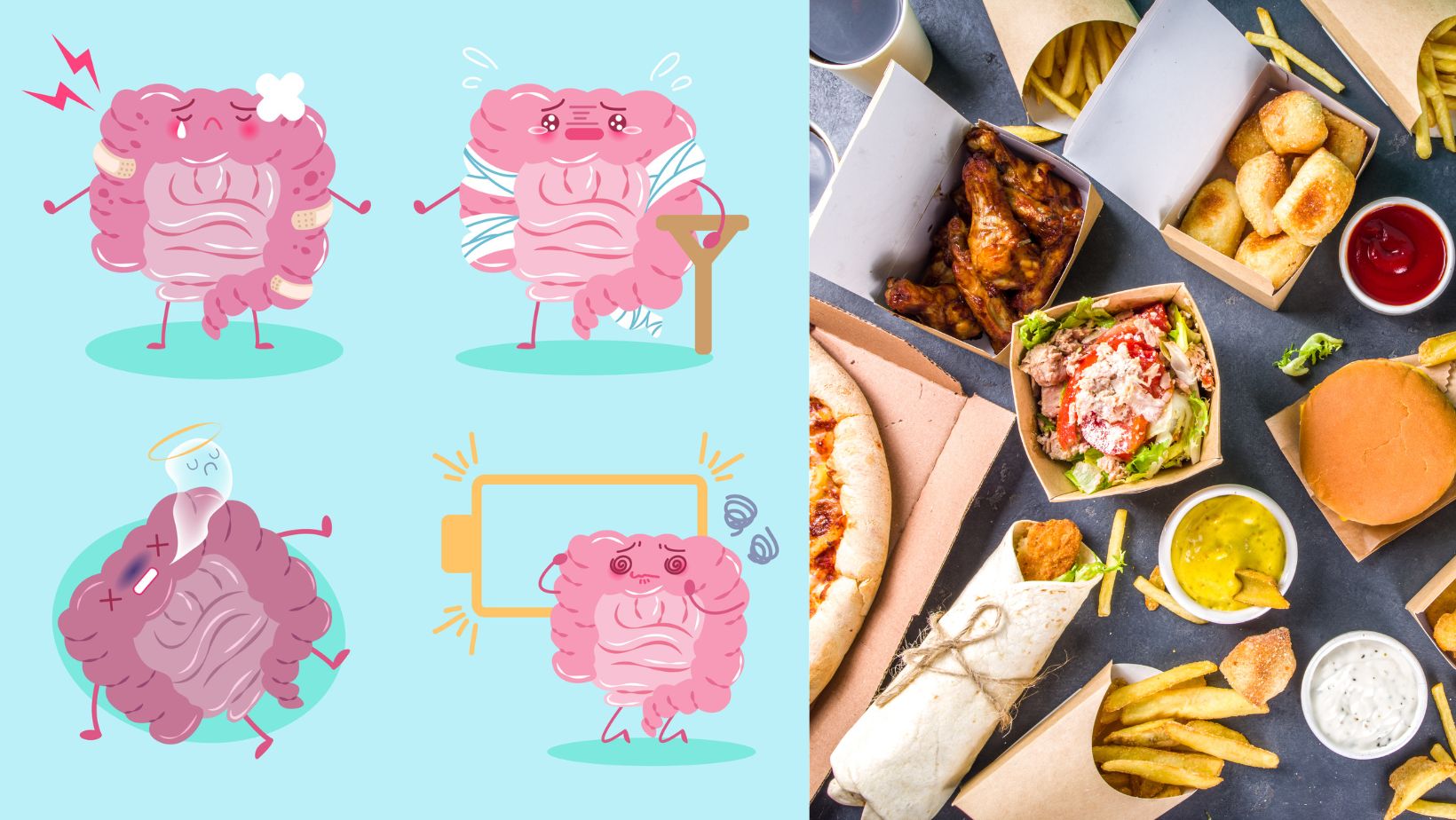Did you know that 80% of your immune system is linked to your gut microbiome? These microbes are essential for your survival: they produce vitamins, neurotransmitters, and protect your intestines.
A disruption of this microbiome can lead to allergies, autoimmune diseases, and other health issues, especially skin problems. Bloating and diarrhea are common signs of an imbalance. In this article, discover the 7 worst foods that destroy your microbiome, and solutions to restore it.
1. Industrial Fibers: Far from Beneficial
Contrary to popular belief, not all fibers are good for health. Industrial fibers like cellulose (made from sawdust!), corn or tapioca fibers are indigestible, even for our microbes. Worse, they feed pathogenic microbes that degrade the protective mucus of the intestine, leading to intestinal permeability (“leaky gut”). Be wary of “functional fibers” mentioned on packaging.
2. Emulsifiers: Gut Disruptors
Maltodextrin, xanthan gum, monoglycerides… These additives give a pleasant texture to ultra-processed foods. But they disrupt the microbiome balance, alter the intestinal wall and microbial diversity. The result: inflammation, “leaky gut”, increased risk of metabolic syndrome, prediabetes, and insulin resistance. Limit ultra-processed foods like industrial chips.
3. Gluten, Casein, and Soy Proteins: Common Allergens
Our body can’t digest wheat gluten, a protein to which many are allergic or intolerant, like milk casein. Highly processed soy proteins are also common allergens that inhibit certain digestive enzymes. They create intestinal inflammation that often manifests as skin problems. Dermatologists treat them with steroid creams without making the connection to diet.
4. Seed Oils: Pro-Inflammatory
Very present in our modern diet, seed oils (sunflower, canola…) are highly inflammatory for the intestine. They can lead to intestinal hyperpermeability, allowing pathogens and allergens to pass through, triggering immune reactions and autoimmune diseases. Limit these oils in processed products as much as possible.
5. Refined Sugars and Starches: Enemies of the Flora
Corn syrup, refined sugars, maltodextrin, modified starch… These ingredients, very present in industrial foods, do more than disrupt blood sugar. Quickly fermented by microbes, they cause gas, bloating, and proliferation of pathogens at the expense of good bacteria. Avoid them to preserve your microbiome!
6. Polyols: Disruptive Sweeteners
Present in many “sugar-free” products, polyols like maltitol are bad sweeteners. They create bloating, diarrhea, and unbalance the microbiome by causing excessive fermentation. Prefer natural sweeteners like erythritol, monk fruit, or stevia, without overusing them. Be wary of products marketed as “keto-friendly”.
7. Aspartame and Artificial Sweeteners: A Harmful Cocktail
Consumed for years, artificial sweeteners like aspartame and sucralose turn out to be harmful to the gut microbiome. They transform neutral or beneficial microbes into pathogens, like the E. Coli bacteria. This is followed by an immune reaction, a decrease in fermentation, and thus less food for intestinal cells. Heavy consumers of diet sodas often have red noses and cheeks, a sign of microbiome alteration.
How to Heal Your Microbiome?
If you suffer from intestinal problems, regular intake of probiotics can help. In case of severe inflammation, a carnivore diet that eliminates irritating foods can be beneficial. This dietary “reset” soothes inflammation of the intestinal wall and associated skin problems.
In summary, to take care of your precious gut microbiome, avoid the 7 categories of destructive foods listed in this article. Favor a natural diet, based on unprocessed or minimally processed foods, avoiding additives. Your flora will thank you!
